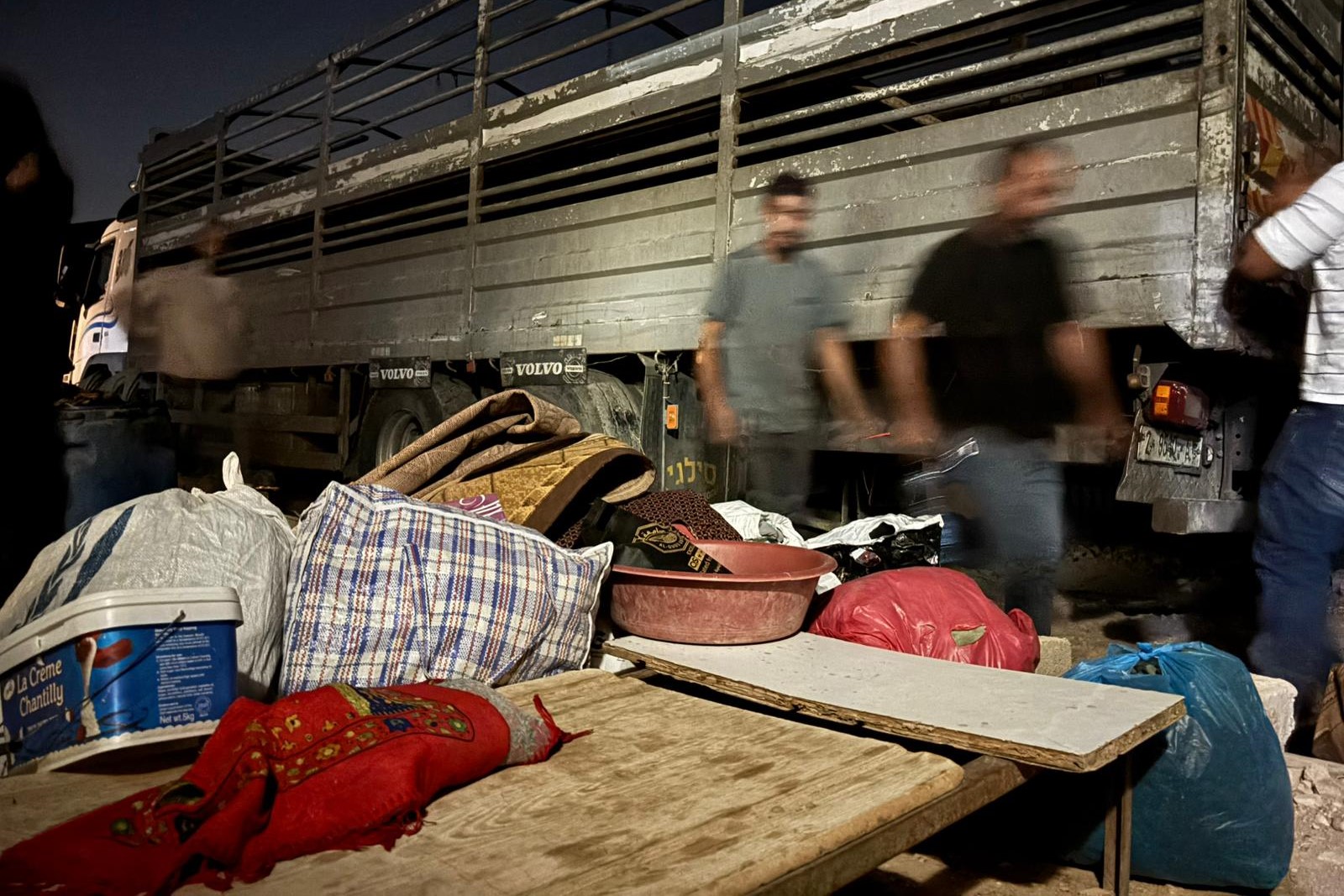TEL AVIV, January 31, 2010 (WAFA)- The Israeli Interior Ministry is demanding that a Jerusalemite be deported under pretext of having spent too many years in the United States.
Elias Khayyo - who holds no foreign citizenship - has been detained for three weeks at Givon incarceration facility in Ramle with other people deemed illegal residents and slated for deportation, Haaretz Israeli Daily reported, today.
Khayyo, 41, was born in East Jerusalem and currently lives in the Christian Quarter of the Old City, where his parents also live. He says he has no relatives in America, nor a home, property or employment there.
The Israeli Interior Ministry, however, maintains that his permanent residency in Israel was revoked in January 2006, due to Khayyo having lived in the U.S. from 1998 to 2005 and receiving permanent-residence status there. Khayyo received Bachelor's and Master's degrees in biology over two extended stays in the U.S. He is now working as a translator in Jerusalem.
The ministry claims Khayyo resided abroad for more than seven years, and that he returned to Israel in 2005 as a tourist by presenting U.S. travel documents, according to Haaretz.
The paper added that Khayyo was detained at the Qalandiyah checkpoint on January 10 while en route from Ramallah to Jerusalem, and his identity documents and mobile phone were confiscated. He was instructed to sign unspecified documents but refused, stating that the documents in question were written only in Hebrew.
Khayyo was then transported to Givon by members of the Israeli “Oz task force” against immigration violations. Once there, he was informed that papers had been filed for his deportation from Israel.
From his incarceration, Khayyo told Haaretz by phone that he had studied in the U.S. from 1990 to 1996, and then returned to Jerusalem. He replaced his expired ID card with a new one, and did not encounter problems with Israeli authorities, the paper adds.
After occupying East Jerusalem in the 1967 Six-Day War, Israel granted Palestinians living there permanent residency; a status based on the Law of Entry to Israel,' even though they and their families did not enter Israel, but were born in Jerusalem.
In 1998, Khayyo returned to the U.S. to pursue a master's degree. He married a U.S. citizen and began the naturalization process to receive citizenship. In 2005 Khayyo decided to return to Jerusalem. He said he had sought to have his Israeli-issued travel documents extended, but was told by the Israeli consulate in Philadelphia that due to his possession of a U.S. Green Card he had to enter Israel as a tourist, and have his American travel document stamped with an Israeli visa, valid for three months. Consulate authorities told him his status vis-a-vis Israel would be taken care of once in the country.
In 1995, under Haim Ramon, the Interior Ministry began taking a harder line against East Jerusalem Palestinians, revoking the permanent-residence status of many of those living outside the municipal borders of Jerusalem (often due to policy-created housing shortages) and those living abroad.
In 2000, after a long public campaign against the new measure, then-minister Natan Sharansky told the High Court of Justice that the Interior Ministry would return to its pre-1995 policy, and vowed to reinstate the permanent-residence status of those East Jerusalemites for whom it had been revoked, as long as they had been living again in the city for at least two years.
After returning to his Jerusalem home, Khayyo contacted an attorney and understood from him that he fell within Sharansky's category of Jerusalemite entitled to permanent residency status.
The Israeli Interior Ministry maintains that his ID card was revoked in 2006, though Khayyo had used it throughout the four years since then without complications.
Attorney Nabil Izhiman, whom Khayyo contacted when placed into the immigration authorities' custody, petitioned the Administrative Court to issue a preliminary order to prevent Khayyo's deportation and the revocation of his residency. For now, the deportation has been postponed, Haaretz concludes.










